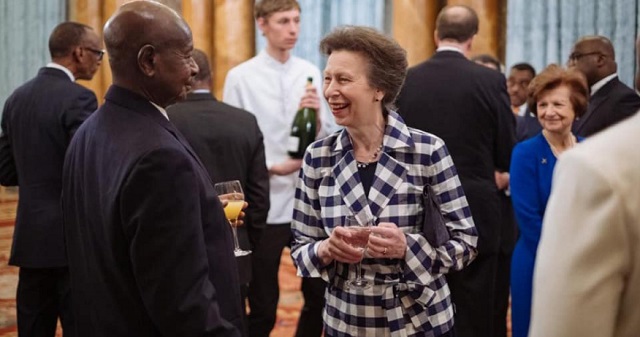
By comparison, Wanjie noted, the British leadership visited 23 countries on the continent with big time lapses. Until Theresa May, the immediate former British Prime Minister visited South Africa, Nigeria and Kenya in 2018, the most recent time a Prime Minister had visited the continent was in 2013. This partly explains the two countries’ fortunes on the continent.
In 2000, for instance, when China held its first summit with Africa, China was importing just US$5 billion worth of goods from Africa, and the UK US$13 billion. By 2013, China had overtaken the UK.
But Jane Nalunga, the Country Director of the Southern and Eastern Africa Trade Information and Negotiations Institute (SEATINI) told The Independent that it is actually a good thing that the UK wants to re-engage and re-negotiate trade agreements with Africa.
The summit is a positive development for countries like Uganda considering that negotiating the Economic Partnership Agreements (EPAs) with the European Union’s 27 members has at times been difficult, she said.
Nalunga says this is partly because some of the EU members from Eastern Europe have no links with Africa and therefore do not care about the continent. This, she says, could change when the UK leaves the EU.
Days before the summit, Alok Sharma the UK Secretary for International Development told The Telegraph that the UK wants to turbo-charge relations with Africa after Brexit by striking trade and business deals across the continent.
Sharma said that Britain’s strengths—from its record as a leading source of private investment on the continent to the attractions of the city of London—will ensure that it remains competitive.
“One of the things I want to do is turbo-charge relations with growth economies and if you look at Africa, eight of the 15 fastest growing economies in the world are now based in Africa,” he said during a pre-summit visit to Kenya.
There is an opportunity out there for us to grasp and I think events like the summit will be a catalyst for that.”
Although sub-Saharan Africa is still the world’s poorest region, few see it as the “hopeless continent,” anymore. The UK has already signed trade agreements with 11 African countries covering 43% of the U.K’s total trade with Africa. The UK has also legislated for a trade preferences scheme with a further 35 African countries with the ambition to build and deepen existing agreements in the future.
Nalunga told The Independent that the UK’s colonial links with many African countries would help its re-engagement with Africa.
“When you look at Uganda’s exports to the EU, a substantial amount of these products go to the UK thanks to the colonial links,” she said, “I think the UK has a good ground to come back and renegotiate some of the trade agreements with Africa.
But other analysts say that for decades, the UK’s aid, trade and investment patterns have reflected a traditional picture of Africa that is rooted in a “colonial and paternalistic mindset” and trade statistics back this argument.
Analysis of trade data shows that the entire African continent accounts for just 3% of all UK goods and services exports. In fact, between the UK and Africa from 2007 and 2016, African exports to the UK stood at US$ 16.89bn, while Africa’s imports from the UK stood at US$ 11.40bn.
Yet, the UK’s trade presence in Africa was not always this small. Until the late 1990s, Britain accounted for nearly 7% of the continent’s imports. Analysts point to the lack of competitive exports from Africa and the rise of other competitive economies. But also the UK had completely turned to the EU. In fact, Europe has been taking the lion’s share of UK trade (54%).
Meanwhile, since 2012, Africa’s exports to the U.K have declined by nearly 50% from US$ 32.43bn to the 2016 level of US$ 16.89bn, mainly due to falling commodity prices and global economic slowdown according to Tralac, a South African-based organization that tracks trade governance on the continent.
But other economic experts say Brussels is not the only reason behind Britain’s weak trade links with Africa. France, Germany and Italy, all EU members, export more than double the value of goods to the continent than the UK according to the International Trade Centre.
Closer to home, in 2017, Uganda’s top exports were coffee (US$555 million), gold (US$ 416 million), dried legumes (US$ 98.4 million), fish fillet (US$ 87.1 million) and cocoa (US$ 74.9 million).
Its top imports were refined petroleum (US$ 934 million), palm oil (US$ 255 million), pharmaceuticals (US$ 236 million), broadcast equipment (US$ 213 million) and motor cars (US$ 141 million).
But, over the same period, Uganda’s top export destinations were the United Arab Emirates (US$ 427 million), Kenya (US $ 391 million), South Sudan (US$ 253 million), DR Congo (US$ 189 million) and Rwanda (US$ 171 million).
Meanwhile, Uganda’s top import origins were China (US$ 1.15bn), India (US$ 724 million), the UAE (US$ 623 million), Kenya (US$ 506 million) and Japan (US$ 376 million).
The UK just bought the following products from Uganda: Edible vegetables and root tubers worth US$ 2.67 million, coffee, tea and spices (US $ 1.89 million), raw hides and skins (US$ 1.77 million), live trees, plants, bulbs, roots and cut flowers (US$ 743,730), edible fruits and nuts (US$ 525,970), salt, sulphur, earth, stone, plaster, lime and cement (US$ 424, 510), cotton (US$ 317,680), art and crafts (US$ 267,160) and beverages and spirits (US$ 100,410).
Still, the UK government appears optimistic that it can change this and it wants to become the G7’s number one investor in Africa by 2022.
 The Independent Uganda: You get the Truth we Pay the Price
The Independent Uganda: You get the Truth we Pay the Price




But Africans sometimes :-/
We are good at forgetting.
And we even feel good about being members of a large group of perpetually colonized, looted and traumatized countries known as the “Commonwealth”.